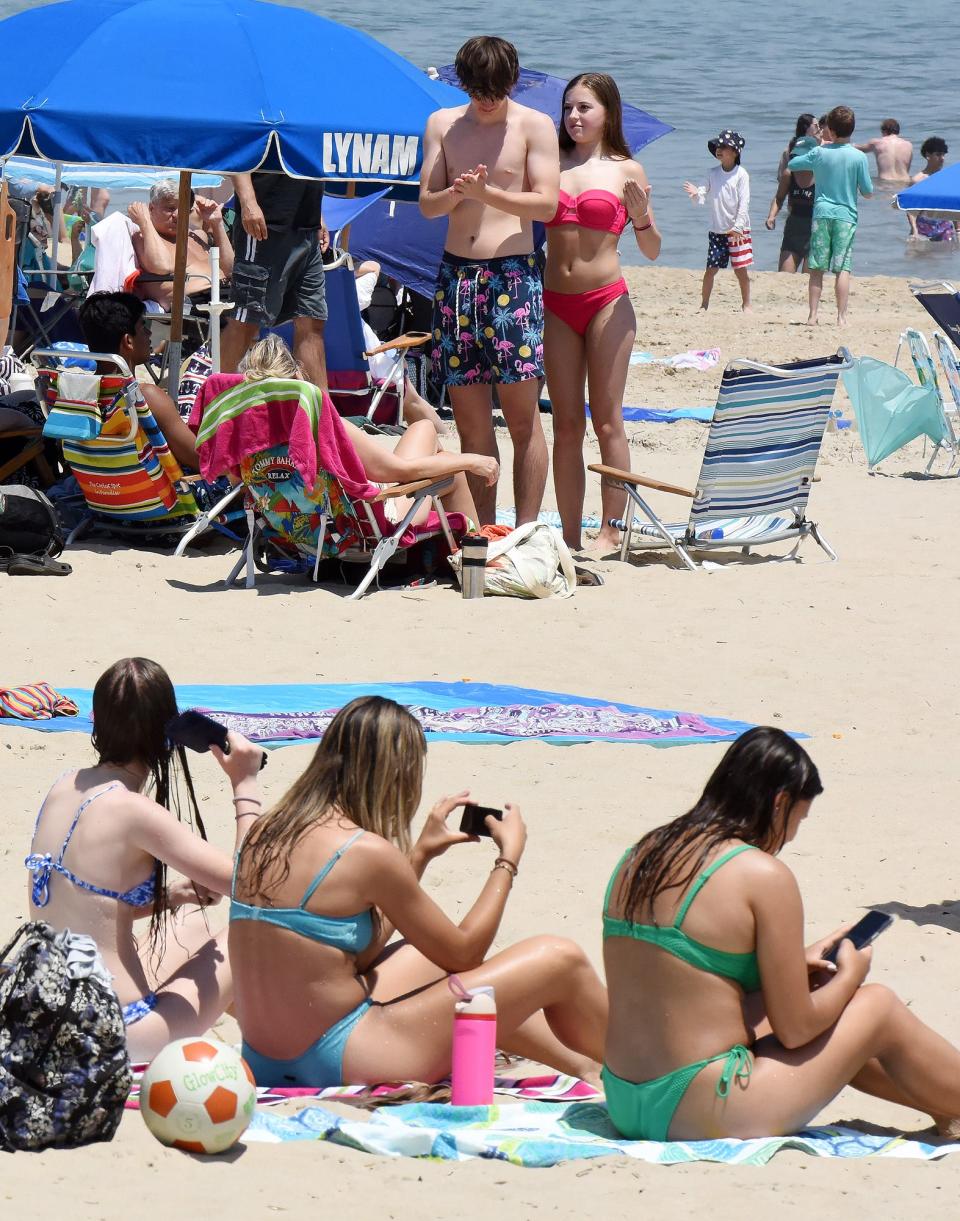Stay safe from heat stress during heat wave 2024 by knowing heat stroke symptoms
The first summer heat wave of 2024 is in full force with temperatures in the 90s and the heat index likely to hit 100 degrees.
So if you're outside, here are a few tips to keep yourself safe in the heat and humidity.

What are signs of heat stress illnesses? Heat stroke symptoms:
With extremely hot and humid weather, people need to be aware of several heat-related illnesses. According to the National Weather Service, here's what to watch for:
Heat cramps: Heat cramps are the first sign of heat-related illnesses. The symptoms include muscle cramps and spasms typically in the legs or abdomen. You should apply pressure on the cramping muscle or gently massage the muscle. The person should also try to sip water unless they are nauseous. If the cramps last more than an hour, the person should seek medical attention.
Heat exhaustion: A person who has heat exhaustion will sweat heavily, be tired, cool and clammy, have a weak, fast pulse, have muscle cramps, dizziness, nausea, headaches and may faint. Move the person to a cool area, loosen clothes and apply cool wet clothes or have the person sit in a bath. Offer water. If a person vomits more than once or symptoms worsen, seek immediate medical attention.
Heat stroke: The symptoms of heat stroke include a body temperature above 103 degrees, a throbbing headache, confusion, nausea, fainting or a loss of consciousness. Call 911 or get the person to a hospital immediately.
Heat index: See Delaware heat index map as heat wave causes record-breaking temps across Northeast
Where to set the AC?: What temperature to set your air conditioner at for summer and in a heat wave
How to remain safe in the heat
With the extreme temperatures, here are some ways to stay safe:
Drink plenty of fluids.
Stay in an air-conditioned room.
Stay out of the sun.
Check up on relatives and neighbors.
Take extra precautions when outside.
Wear lightweight and loose-fitting clothing.
Try to limit strenuous activities to early morning or evening.
Take action when you see symptoms of heat exhaustion and heat stroke.
This article originally appeared on Delaware News Journal: Stay safe from heat stress during heat wave 2024 with these tips
